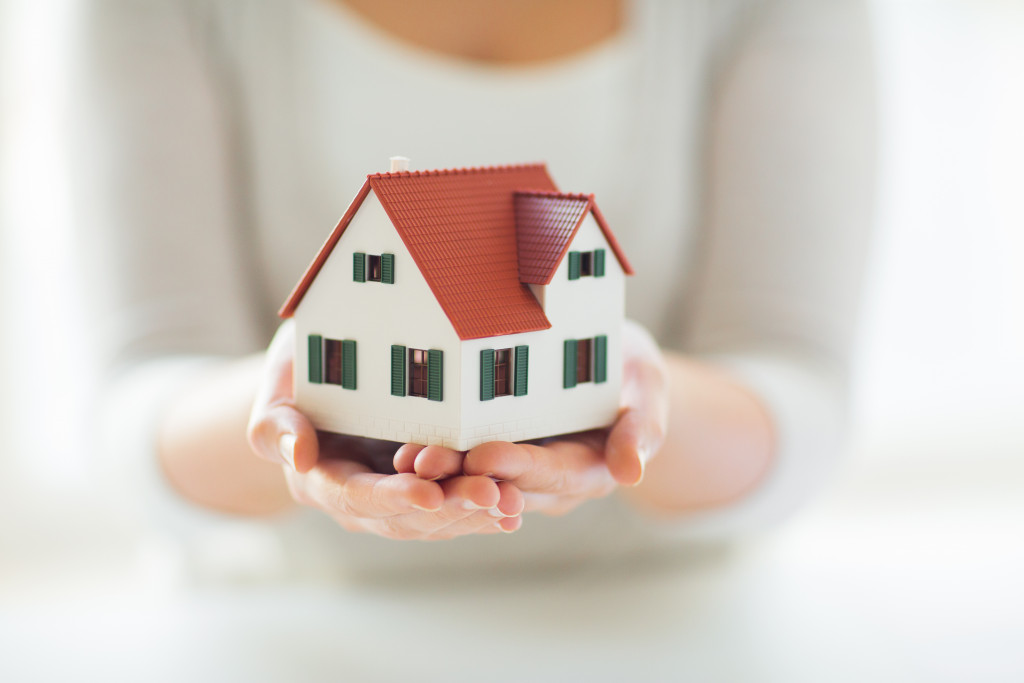Homeowners would often invest in home improvement projects to improve curb appeal and increase their property’s value. But there are two other reasons you should pay attention to your house: to increase home health and safety.
From mold and mildew to lead paint and asbestos, there are plenty of health hazards hiding even in the most well-maintained homes. Fortunately, several home improvement projects can help eliminate these hazards and make your home a safer place.
Here are five projects to consider for a healthier and safer home:
1. Inspect Your Home for Asbestos
Asbestos used to be a popular insulation material due to its fireproofing properties. However, asbestos can cause lung cancer, mesothelioma, and other respiratory illnesses. If your home is more than 40 years old, there’s a chance that it contains asbestos. Most popcorn ceilings installed before 1978 also contain asbestos.
The only way to know for sure is to have your home inspected by certified asbestos professional. If there is asbestos in your home, you’ll need to hire a licensed asbestos removal contractor to get rid of it. Doing so will require you to temporarily vacate your home, but it’s a small price to pay for your family’s safety.
Remember that you should never attempt to remove asbestos on your own. Even if you don’t have any health problems, airborne asbestos fibers can be dangerous if inhaled.
2. Remove Lead Paint
Before 1978, pain manufacturers used lead as a pigment in their products. Lead paint is dangerous because it can easily chip and release lead dust into the air. This is especially harmful to children, who can suffer from learning disabilities, behavioral problems, and even brain damage when exposed to too much lead.
If your home is more than 45 years old, there’s a good chance it contains lead paint. While the risk of lead poisoning from paint chips is low, it can increase if the paint begins to deteriorate or if renovations you are doing renovations that disturb the lead paint. To reduce the risk, consider having the lead paint removed by a professional abatement company.
3. HVAC Cleaning and Maintenance

Your home’s heating, ventilation, and air conditioning (HVAC) system is responsible for circulating the air in your home. But over time, your HVAC system can become a breeding ground for mold, bacteria, and other contaminants. These contaminants can circulate through your home, causing respiratory problems for you and your family.
To keep your HVAC system clean, have it serviced by a professional at least once a year. They will clean your HVAC unit’s interior and ensure that the airflow is in working order. You should also regularly change your HVAC system’s air filter to ensure that it is clean and not circulating any contaminants.
Don’t forget about regular maintenance of your HVAC system. This includes ensuring that the vents and duct work are clean and debris-free. You should also have your HVAC system checked for any leaks, which can allow outside air – and contaminants – into your home. Find reliable experts who can do this for you from reputable service providers. It also helps if you can find an HVAC company that offers other services like water heater repairs, so you won’t have to look for another contractor when you need something else fixed in your home.
4. Mold and Mildew Removal
Mold and mildew are common problems in homes, especially in damp or humid areas like the bathroom, basement, or laundry room. These can cause several health problems, including respiratory issues, allergies, and skin irritations. If you suspect mold or mildew in your home, it’s essential to have it removed as soon as possible.
There are a few ways to remove mold and mildew yourself. The following are a few tips that might help:
- Use a mold and mildew remover to clean the affected area.
- Apply white vinegar or bleach to the affected area and let it sit for 10-15 minutes before wiping it away.
- Run a dehumidifier in the room to help reduce the humidity and prevent mold and mildew from growing.
- Make sure to ventilate the room by opening windows or using a fan.
If the mold and mildew problem is severe, you may need to hire a professional mold remediation company. They will be able to safely and effectively remove mold and mildew from your home.
5. Invest In Smart Home Security
A home security system makes it less likely for your house to be a target of burglars and notifies you – and the police – if somebody breaks in. This reinforces your home’s security, making you feel safer at home.
There are several types of home security systems to choose from. You can go with a traditional system that includes door and window sensors. You can also opt for a more sophisticated system with motion detectors, cameras, and even remote monitoring.
When choosing a home security system, pick one that is right for your home and your budget. You should also consider getting professional installation to ensure that the system is installed correctly and works properly.
By taking these simple steps, you can make your home healthier and safer for you and your family. Don’t wait until there’s a problem to take action — being proactive will help you avoid many potential health hazards in your home.

